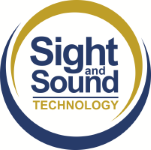Getting AT Ready 2019
Friday 31st May
Here are the speakers who presented at Getting AT Ready 2019. Their presentation content is included below. We also produced a podcast detailing the event. A transcript of the keynotes and panel discussion can be found here.
Welcome Address

Strathclyde University
Stephanie manages the Widening Access Team and works with staff across the University and sector to drive the widening access agenda forward and support the University’s commitment to attracting and retaining students from the widest range of backgrounds.
Stephanie led the award winning TransEDU project exploring the experiences of trans and gender diverse students and staff in Scotland and has supported the Commissioner for Fair Access since 2016 through a part time secondment to the Scottish Government. She is a member of the editorial board of the Journal of Widening Participation and Lifelong Learning and the Editor of the annual publication of the Forum for Access and Continuing Education.
Keynote: Toolkit for Inclusive Higher Education Institutions

University College Dublin
Lisa Padden has worked in University College Dublin (UCD) since 2012 and her current role is as Inclusive Education Coordinator with UCD Access & Lifelong Learning. Lisa works directly with students, faculty and professional staff in UCD. Lisa provides supports for students with disabilities, as well as coordinating and teaching an academic skills development programme. Lisa also works with faculty and professional services colleagues around the university to embed inclusive practice and Universal Design in all parts of the institution. In addition, Lisa collaborates with colleagues in other Universities and Colleges on the wider implementation of inclusivity in Higher Education. Lisa received her BA, MA and PhD from the National University of Ireland, Galway (NUIG), where she also taught in the English Department for five years before moving to UCD. Lisa’s research interests include Universal Design in higher education, promoting independent learning, equal access to education, and assistive technologies.
Panel Discussion: Whose Responsibility is
Accessibility?

Freelance Needs Assessor
Kellie Mote is the Student Experience Manager Access and Inclusion for Edinburgh College, consultant and a co-tutor on Practising Inclusiveness through Needs-led Assessment, a course in College Development Network’s SCQF Level 9 Professional Development Award in Inclusiveness. She has worked in a range of inclusive education contexts for 20 years. A graduate member of the British Psychological Society, Kellie is currently studying MSc Children and Young People’s Mental Health and Psychological Practice at the University of Edinburgh.

Assistant Director for Access, Scottish Funding Council (SFC)
Fiona Burns is Assistant Director for Access, Scottish Funding Council (SFC). Fiona has worked at the SFC since 2002 in various roles including College funding, mergers, skills utilisation and strategic projects. She is currently involved in overseeing a set of access ambitions for both the College and University sector, such as increased intake and retention for our most deprived communities and a reduction in subjects with extreme gender imbalances.

CEO, Lead Scotland
Emma Whitelock is the CEO of Lead Scotland. Emma has had over 20 years of experience working in the voluntary sector within organisations striving for equality of access to learning, volunteering, employment and independent living, predominantly working with disabled people, carers and families. She has been the CEO at Lead Scotland since October 2015, is the Vice Chair of Learning Link Scotland and an Associate Assessor for Education Scotland, involved in CLD inspections. Lead Scotland provides learning, befriending and helpline services which are positive catalysts for people to make changes in their lives. They support disabled people, carers and people who experience exclusion and involve people with lived experience in their policy work. They are focussed on supporting disabled people and carers to find ways around barriers.

Policy Manager, SAAS
Russell Renton is a Policy Manager working in the Student Awards Agency Scotland (SAAS) Operational Policy Team. His team provides information and guidance to a wide range of stakeholders on all areas of Higher Education student support policies in Scotland. He works closely with the Scottish Government Higher Education and Science Student Finance Support team on policy development and implementation. Russell has worked in student support for over nine years and has fulfilled various roles across SAAS including roles in Policy and Operations. He has a wide range of experience and knowledge of the student support system in Scotland.

University of Strathclyde
Carol Howieson has worked in the area of supporting disabled students and assistive technology for the last 20 years, with no two years the same. Carol believes that getting AT right for the student is key, but equally important are infrastructure and services. Carol’s early work involved working with colleagues in IT to ensure that assistive software was available at login across all campus computer labs and, as such, the University of Strathclyde was one of the first universities to have screenreader and magnification software available at login for students who need it, as well as text-to-speech and mind-mapping available for all. Carol was involved in the development of the university’s Digitisation Service, which, now in its 12th year, supports students who are visually impaired and blind by providing their required course texts in a readable format – on time! Carol was also involved in setting up ATANET as a network for Assistive Technology Advisers in Scottish HEIs. Carol’s work is predominantly around the development of systems to manage processes within the Disability and Wellbeing Service, which strive to ensure that the growing number of applicants and students are supported in their journey through the University.
Workshop: Integrated Solutions: AT For Free
Many technologies have accessible functions built in. This includes iPhones, iPads, Android phones, Windows PCs and Macs. Learners can benefit from these features, but only if they know the settings are there! Fil will present a range of features to help with reading, writing and physical access. He will also showcase short, focussed video resources which will guide learners and staff on how to access these settings.

Lead Assistive Technologist, Beaumont College
Fil is passionate about the advantages the right technology can give to enhance life, communication and learning. He has provided training in assistive technology hardware and software to a wide range of professionals from schools, colleges, universities, charities and healthcare. As one of TechAbility’s Assistive Technologists, Fil consults with colleges to help them improve their assistive technology provision and practice. In addition to his TechAbility role, Fil is the Lead Assistive Technologist at Beaumont College in Lancaster where he manages a team which assesses and supports students so they gain maximum advantage from technology. Prior to Beaumont College, as part of The BRITE Initiative, Fil delivered Assistive Technology training and support to every college in Scotland. Other positions Fil has held in this field are part of Inclusive Technology delivering Training and Consultancy in schools, colleges and care services across the UK and Assistive Technologist at Seashell Trust School and College in Manchester.
Workshop: The SFE Mystery: How to Speak their Language
In this workshop Jo will unravel the mysteries of the justifications used when writing reports for Student Finance England and other Funding bodies and look at the equipment that is approved and often not! Understanding the complexities and pit falls of report writing will offer anybody tasked with assessing a disabled student, the ability to get their professional recommendations approved more easily!

Jo has been working in the DSA Sector since 2013 as a Needs Assessor, Centre Manager and Service Director. She currently manages 16 DSA Assessment Centres for Access2Learn, coordinates the central administration team, Quality Assures Staff and a team of over 25 Needs Assessors across England. They primarily see students funded through Student Finance England but will also assess Student Finance Wales, Student Finance Northern Ireland and SAAS funded students. Over this time, she also conducts assessments within the workplace to identify Assistive Technology and reasonable adjustment recommendations.
Workshop: The Baseline for AT Knowledge: How to Engage with Academics
Glasgow Kelvin College has a Digital Inclusion & Assistive Technology subcommittee chaired by Gary Sharp. The remit of the subcommittee is to increase and embed the use of Assistive Technologies to aid learning. The subcommittee quickly established that, for digitally capable staff and to empower students, there are some DI & AT knowledge baselines the College should consider to be an absolute minimum staff requirement. From this, a ‘Baseline of Knowledge’ was created. Our next aim is to get every member of staff up to, as a minimum, this baseline.

Glasgow Kelvin College
Gary has been working in the area of Advice, Guidance & Learner Support for over fifteen years. He is currently responsible for the day-to-day operational management of the Advice, Guidance and Learner Support department within Glasgow Kelvin College and developing the services for learners in line with the College’s Access and Inclusion Strategy. As well as overseeing the department’s operational functionality, he attends several Cross-College committees and also chairs the College’s Digital Inclusion & Assistive Technology subcommittee.

Glasgow Kelvin College
Tom currently has a dual role within the College as a Learning Technologist and Digital Skills Lecturer. These roles oversee the development and use of the College’s virtual learning environments and staff training and development using the Microsoft Office 365 productivity tools. Having just returned from completing the Microsoft Innovative Educator (MIE) Expert and Trainer courses, the College is now looking at taking accessibility beyond mere compliance, through to a fully inclusive Next Generation Digital Learning Environment. Using 21st Century Learning Design principles they aim to encourage content creation to be accessible by default.
